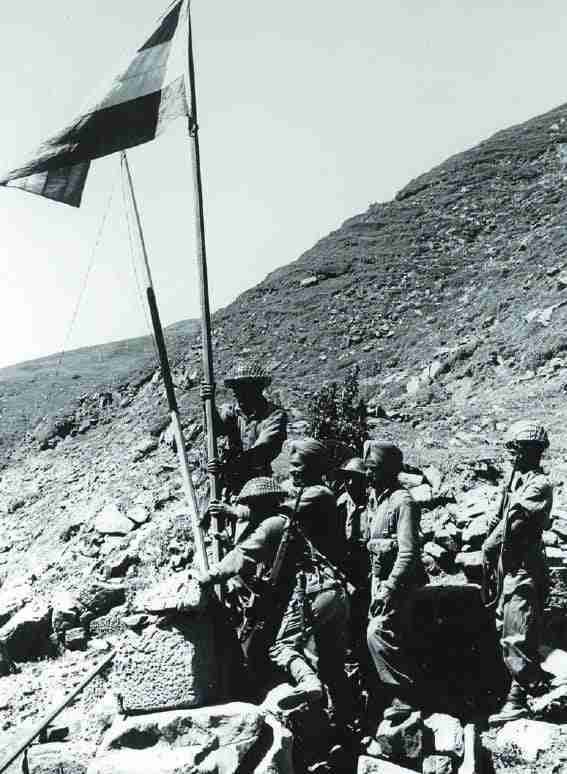August 15, is always a special celebration. But August 1947 was also a traumatic period, for ‘azadi’ was accompanied by the partition of the sub-continent with tragic consequences for those who were uprooted and concurrently the assets of the Indian military (fauj) were also divided between India and Pakistan.
The post-1947 trajectory of India and Pakistan is a marked contrast in the political evolution of the two independent nations and the role of the fauj is instructive. India’s track-record over the last 70 years has made it the world’s largest democracy – and barring the brief Emergency imposed by then PM Indira Gandhi in the mid 1970’s, the Indian democratic grapple has been robust.
Despite the warts of inadequate governance, the corrosion of institutional credibility and the challenges of redressing the socio-economic deprivation for millions, the Indian experience is positive and democracy has taken firm root. This has been enabled in no small measure by the Indian fauj which remained committed to the constitutionally mandated principle of civilian political supremacy and maintained an apolitical, secular and professional orientation.
In sharp contrast, the Pakistani trajectory is marked by a military that progressively undermined the elected representative and not only has the fauj in that country subsumed the state. But it has also contributed to a divisive theological and sectarian ideology that endorses rampant oppression (recall the plight of the Ahmadiya, East Pakistan and now Baluchistan) and is now invested in support to terror under the banner of ‘jihad’. How does the Indian state perceive its military as an institution? This is a complex and opaque domain and some historical recall may be warranted.
The fauj battles on
Despite Pandit Nehru’s sterling contribution in the freedom struggle and the nurturing of the idea of India as a plural democracy, the first Indian prime minister had an uncomfortable relationship with the fauj and its top leadership and an inadequate appreciation of matters military in the national calculus. Alas, he exuded a certain ingrained disdain for the military (compounded by his choice of Krishna Menon as the Defence Minister) and this has been internalised by the state over the decades.
The need for a nation – however peace-loving – to have a credible military in the national quiver was established first in October 1947 over Kashmir and later in the 1962 debacle with China; the 1965 and 1971 wars with Pakistan and later in Kargil in1999 and most recently Mumbai in 2008.

The tasking of the Indian Army in internal security duties has seen a steady increase and the proxy war unleashed by Pakistan since 1990 has only compounded the critical role being played by the fauj in defence of country and flag. Yet for reasons that remain unarticulated, the Indian state has chosen to steadily dilute the military as an institution in the larger lattice of governance.
Civilian supremacy has been interpreted in an inequitable manner to the detriment of the fauji and this is most palpable in the manner in which pay and allowances have been determined by successive pay commissions. Many veterans will recall that in earlier decades, joining the military was a preferred option as opposed to the civil services and there was never any doubt about the distinctive status accorded to the service officer.
It could not be compared to the civil services or the police and had its own ‘izzat’. This alas has been eroded over the decades and now it is not clear if a military officer is on par with the deemed to be superior services – the IAS, IPS and allied services.
The need to do more
The revised pay and allowances for the civilian cadres and the introduction of an NFU (non-functional upgrade) for all Class A officers barring the military has led to an anomalous situation wherein the Indian fauji is now at a lower financial and hence status rung than even the Central Armed Police Forces.
It is understood that the seventh pay commission recommendations will be implemented for all government employees except the military on September 1st and that on the eve of Independence Day the three service Chiefs had written to the Prime Minister seeking redress of these accumulated inequities.
The fine-print of the manner in which the fauji is being discriminated against is most anguishing when it comes to the disabled soldier. PM Modi who has championed the cause of the fauji since assuming office must give this matter the empathetic attention it merits and ensure that the ‘izzat’ of the fauj is not sullied or lowered.
The ball is now in the Modi court to redress the damage done to the institution in the Nehru-Menon era.
Commodore C Uday Bhaskar, is currently Director, Society for Policy Studies (SPS), New Delhi. He was previously Director, National Maritime Foundation (NMF) and prior to that he headed the Institute for Defence Studies and Analyses (IDSA). AUGUST 15, ‘AZADI’ AND THE DILUTION OF THE INDIAN FAUJ Commodore C Uday Bhaskar


